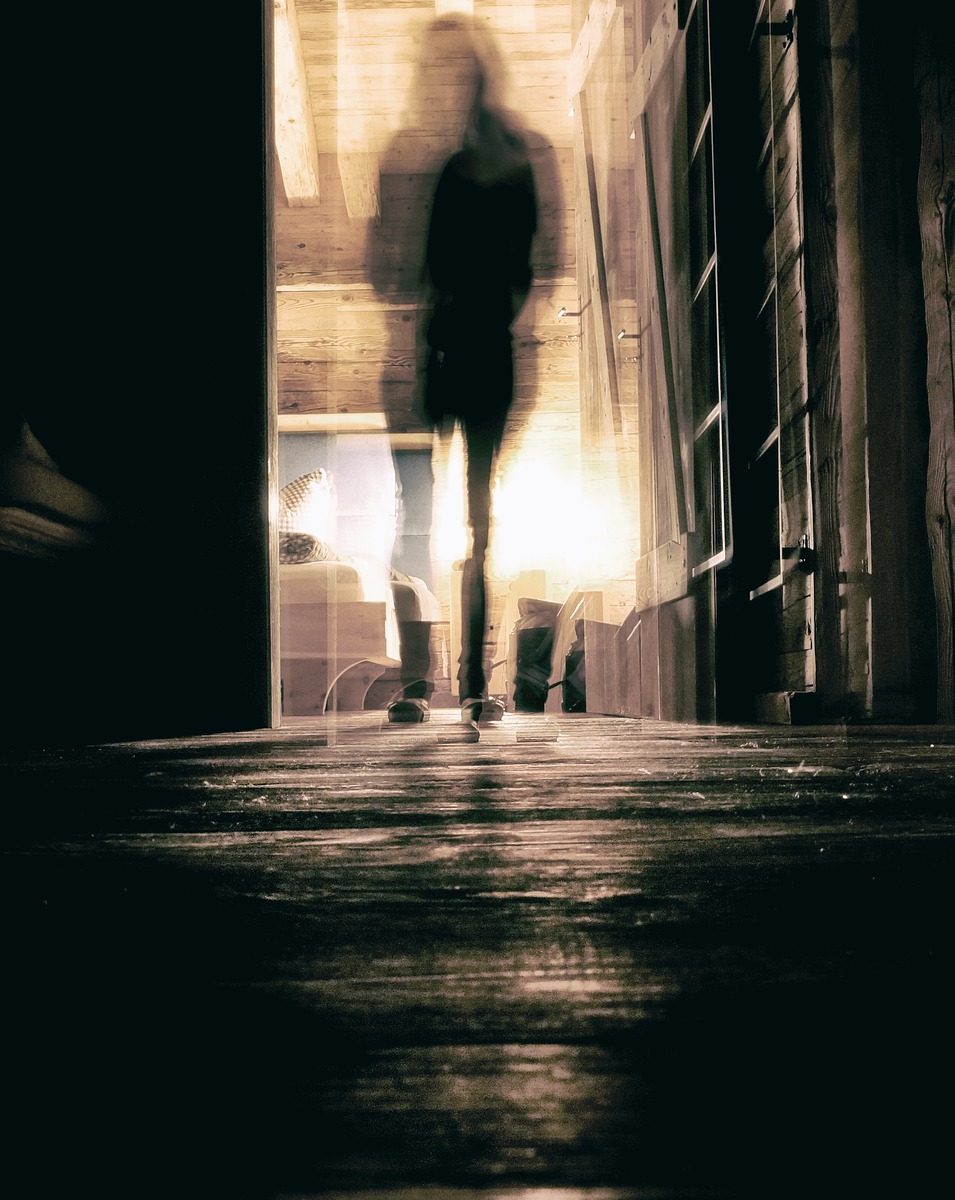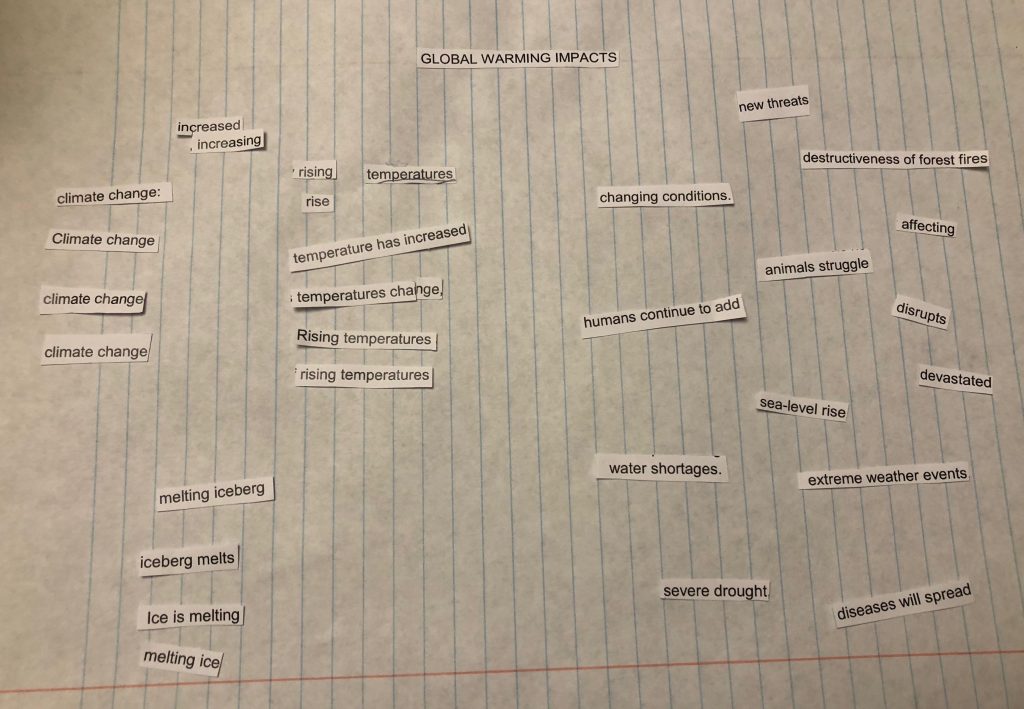Jordyn Ferguson
Lidia Sferrazza
Shane Gresser
Michael Raymie
The etymology of “ghost” can be defined from the Oxford English Dictionary as “the soul or spirit, as the principle of life, also ghost of life, obsolete except in phrase to give up” (OED). Another definition from Dictionary.com describes a ghost as “the soul of a dead person, a disembodied spirit imagined, usually as a vague, shadowy or evanescent form, as wandering among or haunting living persons” or “a mere shadow or semblance; a trace.” When we think of ghosts, we may think of these definitions or even typical ghost stories that we heard growing up which often involve fear. Though the word has several meanings, they all somewhat define a ghost as a spirit and as something that is unseen or even ignored. It seems that the word has developed over some time throughout the course of history. Ghosts and ghost stories are very powerful because they can haunt someone or have a large effect on them without literally existing or at least not existing at this moment. The power of ghosts is demonstrated throughout The Woman Warrior by Maxine Hong Kingston and Mean by Myriam Gurba.
Looking at the beginning of Mean, Gurba immediately tells us the story of Sophia, a girl whose tragic story had not been given enough attention to on the news. She had been raped and murdered in a park, yet she had only been reduced to a “transient” (3), which deprived her of being known at least as a real person who lived a real life. Because we find out later on in the book that Gurba had been sexually assaulted by the same man that killed Sophia, we can understand why Gurba feels this guilt. She grew up in a very different situation with stability, and she survived, unlike Sophia. This explains why Gurba may feel like “Sophia is always with [her]” and “She haunts [her]” because she knows that Sophia’s story is invisible, like a ghost, therefore she wants readers to be confronted head-on with the horror and violence (3). Even though she never knew this girl, her story is powerful because it is ignored, overlooked, and forgotten about, yet still, Gurba continues to remember her because she wants everyone to know who she is. After what happened to her, Sophia deserves at least that. In this case, Sophia’s ghost story can help readers to understand the power and significance of guilt in the book.
We see the idea of ghosts occur often in Maxine Kingston’s The Woman Warrior. These ghosts help tell her story, and they are used to give extra information about the author. The way the author describes a ghost gives us insight into the author’s life and how they see the world. The ghosts appear in different forms, but the most important ghost is her aunt. Kingston starts off her memoir with the main ghost, her late aunt who killed herself by jumping into a well. In the very first line of the memoir, she says ““You must not tell anyone.” My mother said, “what I am about to tell you. In China, your father had a sister who killed herself. She jumped into the family well. We say that your father has all brothers because it is as if she had never been born” (Kingston 3). The last part of this quote is the most powerful because Kingston’s mother tells her that it is as if her aunt had never been born. The family had turned Kingston’s aunt into a ghost including her own brother, Kingston’s father. Her mother then reinforces that Kingston’s father has acted like his own sister didn’t exist because she had brought “shame” to their family by becoming pregnant by a man who was not her husband. After the villagers go to her house the aunt’s family tells her “Death is coming. Look what you’ve done. You’ve killed us. Ghost! Dead Ghost! Ghost! You’ve never been born”(Kingston 13 and 14). Before she even kills herself and the child the family has already started to turn her into a ghost by telling her she has never been born. Kingston talks about how her aunt’s ghost haunts her she writes “My aunt haunts me- her ghost drawn to me because now, after fifty years of neglect, I alone devote pages of paper to her…I do not think she always means me well. I am telling on her, and she was a spite suicide, drowning herself in the drinking water” (Kingston 16). This shows that her aunt even though she is not around still has an
effect on Kingston. She says that after fifty years someone is finally talking about her but Kingston does not think that her aunt likes this all the time. She feels as though her aunt doesn’t “mean her well” because she is telling the world that she killed herself and in Chinese culture that is frowned upon.
Even though Kingston never gets to meet her aunt, and she only knows about her through what her mother tells her, she still has an impact on Kingston’s life. Kingston, after learning that she had an aunt, starts to imagine that her aunt’s life was similar to her life and makes assumptions based on what she has experienced in life. The aunt also has an impact on Kingston’s life because the mother tells the story of the family turning the aunt into a ghost as a way to scare Kingston into not making the same “mistake” as her aunt did. She tells her “Don’t humiliate us. You wouldn’t want to be forgotten as if you had never been born. The villagers are watchful” (Kingston 5). Kingston’s mother tells her that if she makes the same choices that her aunt made that the family will also turn her into a ghost, making her into nothing but a distant and forgotten memory.
We also hear about the physical ghost that Kingston’s mother sees later in The Woman Warrior. Kingston’s mother, Brave Orchid, describes the ghost as “a full-grown Sitting Ghost loomed up to the ceiling and pounced on top of me. Mounds of hair hid its claws and teeth. No true head, no eyes, no face, so low in its level of incarceration it did not have the shape of a recognizable animal” (72). This ghost that Brave Orchid was describing was included in a story in which she was telling to Kingston. This story that Brave Orchid tells was from a ghost she made up in medical school to impress the students around her. The story of the Sitting Ghost, was a ghost that particularly went after newborn children, feeding off the weakness of humans. This ghost is very prevalent in the story, and represent one of the many ghosts that are described throughout the book. Kingston later goes on to describe the “ghosts” that Brave Orchid has told Kingston about. Although these aren’t the typical ghosts most readers would think about, such as “the soul of a dead person, a disembodied spirit imagined, usually as a vague, shadowy or evanescent form” (dictionary.com “Ghosts”), Brave Orchid describes the white people around them as ghosts. Kingston says that “America has been full of machines and ghosts– Taxi Ghosts, Bus Ghosts, Police Ghosts, Fire Ghosts, Meter Reader Ghosts, Tree Trimming Ghosts, Five-and-Dime Ghosts” (97). By telling Kingston that the white people are ghosts this implies that everyone living in America that is not Chinese is a ghost. Brave Orchid thinks of Americans as ghosts because of the different lives they live. Americans are viewed as ghosts because the Chinese people are unfamiliar with how the Americans live and their way of life. They’re culture and customs are a foreign concept to Kingston’s family. Brave Orchid passes down this idea of the ghosts to Kingston and because of this, Kingston grew up her entire childhood living in fear of all these different kinds of ghosts, the biggest reason is because of the story about her aunt that had “never been born” (3). This story resulted in Kingston growing up and living in fear because she did not want to disappoint the family as the aunt had in the past. Kingston lives in fear of the Ghost of her dead Aunt that her mother, Brave Orchid, said had “never been born” (3). Brave is living in fear of all non-Chinese people and passed this idea down to Kingston. Kingston lives in the fear of ghosts from all of the stories that her mom had told her. Kingston feels completely surrounded by ghosts, and it is because of these stories that Kingston struggles to figure out the things that are true in her life. Brave Orchid used the story and Kingston’s fear to control her behavior. Ghosts help us understand literature more as well as understand the author of literature’s life experiences and views. The author’s use of personal experiences to describe ghosts allows us to see more into their lives and learn more about them. It makes us have to also interpret their lives instead of them coming out and telling us things about them, it shows us who they are without them directly telling us who they are. Ghosts allow us to read literature with an open mind and allow us to interpret the text more in contrast to just reading facts for how they are.
Works Cited
“Free Image on Pixabay – Spirit, Creepy, Halloween, Ghost.” Spirit Creepy Halloween – Free Photo on Pixabay, https://pixabay.com/photos/spirit-creepy-halloween-ghost-2304469/.
“Ghost.” Dictionary.com, Dictionary.com, https://www.dictionary.com/browse/ghost.
“Ghost, n.” OED Online, Oxford University Press, December 2019, www.oed.com/view/Entry/78064. Accessed 5 December 2019.
Gurba, Myriam. Mean. Coffee House Press, 2017.Kingston, Maxine Hong. The
Woman Warrior. Vintage International, 1975.


